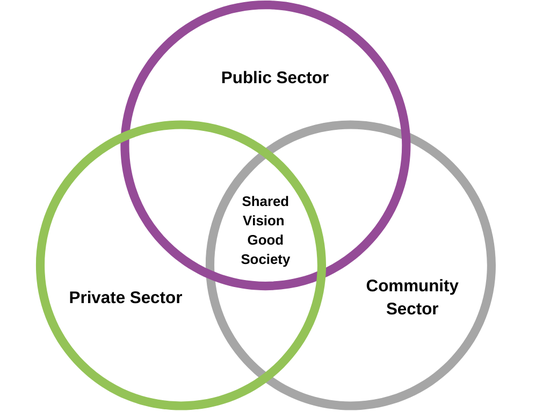For the last in our series of #BBBYouthWelfare webinars run in partnership with De Montfort University and LLR Safeguarding Children Partnerships, we focussed on the implications of the “Levelling up” agenda for local growth and development.
The session was chaired by Kieran Breen, CEO of Leicestershire Cares and moderated by Dr Anamaria Oprea, Faculty of Health and Life Sciences, School of Applied Social Sciences, De Montfort University and guest speakers were:
Gavin Rice Head of the Work and Welfare Policy Unit, Centre for Social Justice
Chris Hobson Director of Policy and External Affairs. East Midlands Chambers
Professor Rachel Granger Leicester Castle Business School, De Montfort University
Zamzam Yusuf Action Research Officer (Diversity and Inclusion) Leicestershire Cares
Frances Foley Deputy Director Compass
In a wide ranging discussion Gavin highlighted that the decline in manufacturing and the rise of globalisation since the 70’s and subsequent offshoring of jobs had seen “pounds” leave the North and come back into the South. However, income inequality is more widely spread than many might think.
You might be surprised to know that 6 out of 10 people live in areas where income is 10% below the national average
Gavin Rice
Both Gavin and Rachel highlighted how the decline in manufacturing, down from 30% of economy to 10% had hit communities hard. Rachel strongly felt that manufacturing should not be seen as a thing of the past and government should be looking at tailored regional approaches to boost the manufacturing sector. Rachel also highlighted that 127,000 jobs in Leicester were in vulnerable sectors and for the past 20 years Leicester, had been in the poorest 15% of places in the UK, so action was needed.
Manufacturing, manufacturing, manufacturing is the key to overcoming regional inequalities and we need an incremental and innovative approach to building back our manufacturing sector
Professor Rachel Granger
Chris felt there was a lack of clarity of what “Levelling up” meant and noted that public sector investment in the East Midlands was low.
Various tiers of government structures are often confusing and not that effective
Chris Hobson
Zamzam shared that through her work with disadvantaged and excluded communities it was clear that there is a complex web of interlocking factors that lead to inequality and exclusion.
Nobody has all the answers but all of us have the answers, which is why we need creative joined up partnerships between, business, community, local and national government
ZamZam Yusuf
Frances focussed on the democracy and power aspects of “Levelling up” and suggested throughout lockdown we had seen what citizens can achieve through local action. She felt that our “first past the post” electoral system prevents people’s voices being heard. What is needed alongside electoral reform is a much greater focus on devolution, regional power and creative community engagement.
The key to “Levelling Up” is “Powering Up” and that means listening to, working creatively with and empowering communities at local level
Frances Foley
In discussion with the audience, panellists felt young people faced many challenges and more needed to be done to link school with the world of work. There were concerns, that the least able young people could be left behind as unemployed university graduates were more attractive to employers. It was also noted that many parents did not understand or value vocational training. There was also the issue of graduates leaving the undeveloped areas to find work in London and South East, which in turn feeds into the feeling of towns and cities that are left behind.
Work needs to be done with parents so they more fully understand the benefits of vocational training and education and apprenticeships and do not see them as a poor relation of university courses
We need to proactively involve and listen to Young People, so their lived experiences and voices help drive the levelling up agenda
It was also noted that there are people in their 50’s who have lost their jobs and struggle to retrain. Many of these people feel let down, excluded and alongside political apathy there is also a growing alienation and anger towards what is seen as an out of touch London based, political elite.
Participants felt that key to much of what we were discussing was “local people and organisations” working together and key to this was being willing to listen to different perspectives and work across sectors.
The success of the production and roll out of the vaccine has shown what can be achieved when government, community and business work together in an agile and creative way
The move towards encouraging a circular economy where proactive efforts are made to keep money in the local economy was mentioned as one way of seeking to make local growth working for all.
In summing up, Kieran shared that throughout the course of this webinar series several key issues had kept coming up.
Partnership, creativity, agility, digital connection, local focus, local ownership, working without ego, silo or logo and, learning and benefitting from the skills and experience of the local community have consistently been mentioned as key to tackling the many issues our city and county face
Kieran Breen
More Information
Centre for Social Justice https://www.centreforsocialjustice.org.uk/
East Midlands Chamber https://www.emc-dnl.co.uk/
Compass https://www.compassonline.org.uk/
New Power Review https://thenewpowerreview.substack.com/about
Diversity and Inclusion work https://www.leicestershirecares.co.uk/about-charity/news-events/diversity-and-inclusion-moving-forward-together-we-can/
Power To Change Model https://www.leicestershirecares.co.uk/about-charity/our-approach/power-to-change/


